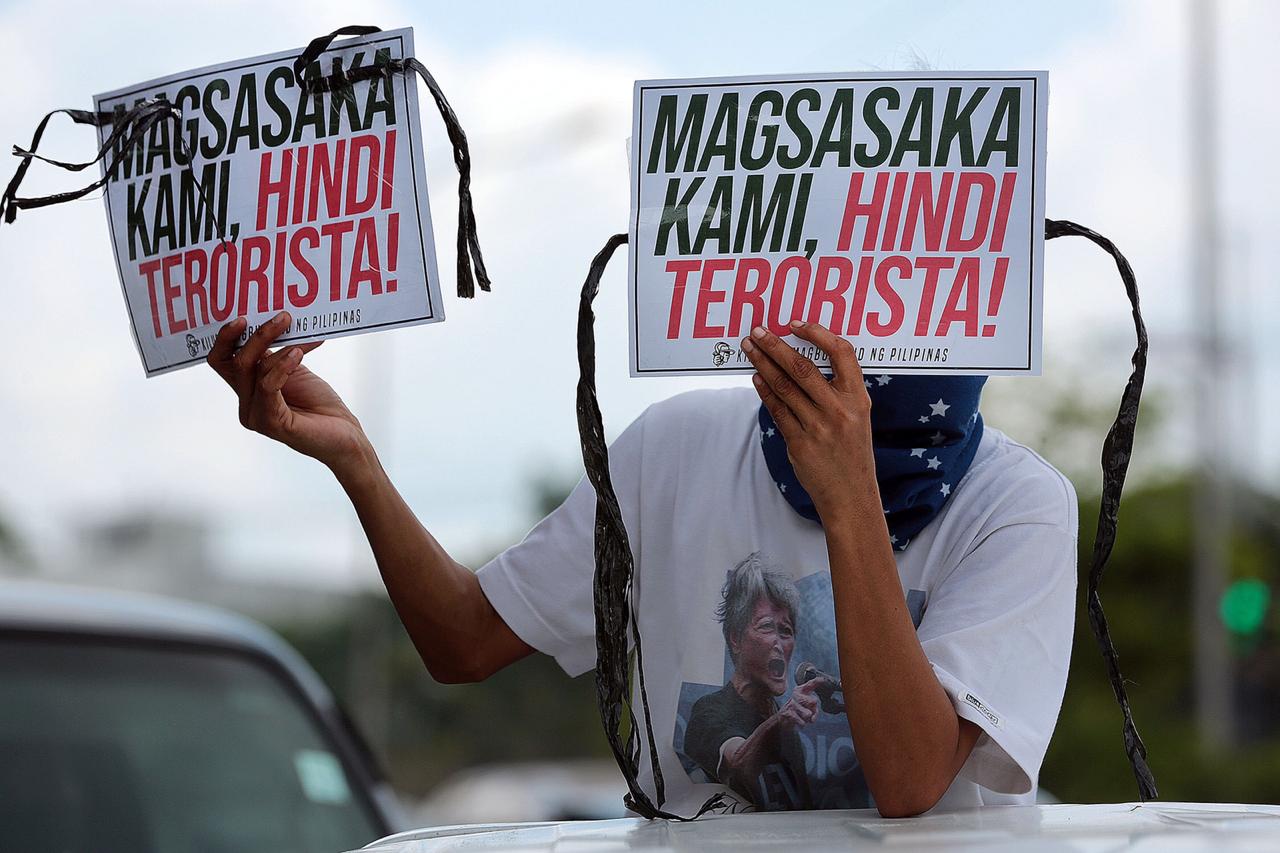UN rights official: Philippine anti-terror bill worrying

A peasant protester holds placards to denounce the Anti-Terrorism Act of 2020, a proposed law that sparks fears it could be used to muzzle free expression. (Grig Montegrande/Inquirer)
MANILA, Philippines — New anti-terrorism legislation passed by the Philippine Congress that allows the detention of suspects for up to 24 days without warrants and relaxes human rights safeguards is “very worrying,” a U.N. rights official said Thursday.
The House of Representatives passed the Anti-Terrorism Act of 2020 on Wednesday night after President Rodrigo Duterte urgently endorsed the legislation, despite fears it could threaten human rights and be used against his political opponents. The Senate passed its version in February.
Once signed into law by Duterte, the legislation will replace a 2007 anti-terror law called the Human Security Act which was rarely used, largely because law enforcers can be fined P500,000 for each day they wrongfully detain a terrorism suspect.
Lawmakers removed such safeguards in the new legislation, which increases the number of days that suspects can be detained without warrants from three to 24.
Ravina Shamdasani of the U.N. Human Rights office said the legislation defines terrorism broadly and allows officials to designate people as terrorists in provisions that “may violate the principle of legality under international law.”
“You add to this the context in the Philippines where a lot of human rights organizations are routinely labeled as terrorists, this is very worrying,” Shamdasani said in an online news conference on a new U.N. Human Rights Office report about threats to human rights in the Philippines.
The report said the legislation was among proposed new laws and amendments “with the stated aim of strengthening public order and countering terrorism,” but “which risk eroding constitutional and other legal protections.”
Vice President Leni Robredo said the legislation sparks fears that it could be used to muzzle free expression, especially “in the hands of people who have no qualms about using disinformation, inventing evidence, or finding the smallest of pretexts to silence its critics.”
“This power is very dangerous,” said Robredo, who leads the political opposition.
Defense Secretary Delfin Lorenzana and other officials played down such fears, saying the legislation contains adequate penalties for abuse and won’t be used against government opponents. The constitution guarantees civil liberties including political protests, which could not be deemed terrorism even if they turn rowdy, he said.
Presidential spokesman Harry Roque cited recent attacks by Muslim militants that displaced villagers in Mindanao, home of minority Muslims in the largely Roman Catholic nation, as proof of the need for a stronger law against terrorism. Military officials say terrorist threats have diminished but remain.
For years, government troops have been battling Abu Sayyaf militants who have been listed as terrorists by both the United States and the Philippines for ransom kidnappings, beheadings and bombings in the restive south.
In 2017, hundreds of militants affiliated with the Islamic State group laid siege to Marawi City. Troops quelled the siege after five months in a massive offensive that left more than 1,000 people dead, mostly militants, and the mosque-studded city in ruins.